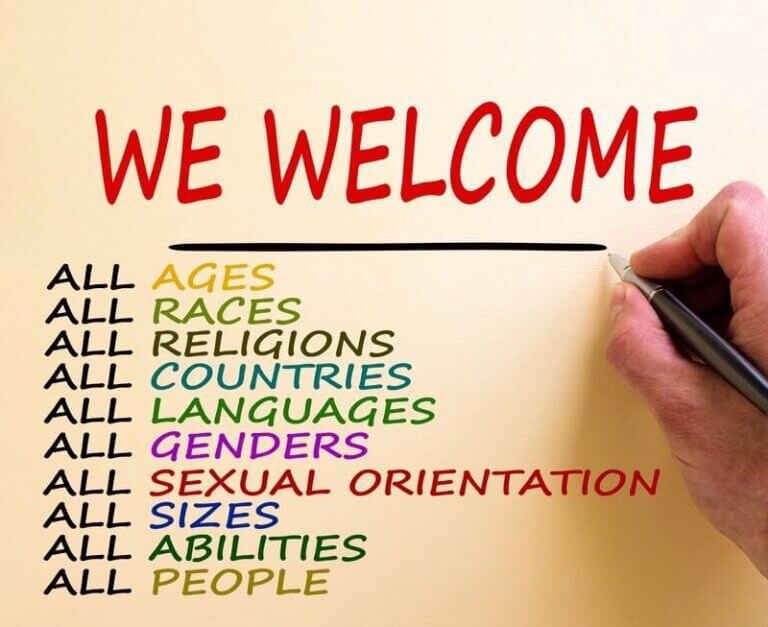As the business world evolves, diversity and inclusion are no longer just buzzwords—they’re key to effective leadership. More companies are beginning to understand that when leadership teams reflect a range of backgrounds and perspectives, they’re better equipped to innovate, make sound decisions, and connect with the diverse customers they serve.
This article explores the significance of diversity in executive search and the pivotal role inclusive leadership plays in fostering organizational growth.
The Business Case for Diversity in Leadership
Research consistently demonstrates that diverse executive teams outperform their less diverse counterparts. According to a McKinsey study, companies in the top quartile for both gender and ethnic diversity on executive teams are more likely to experience above-average profitability compared to those in the bottom quartile.
Diverse leadership brings a wealth of perspectives, enabling organizations to understand better and serve a broad customer base. It fosters creativity and innovation, as varied experiences and viewpoints lead to more robust problem-solving and decision-making processes.
Challenges in Achieving Executive Diversity
Despite the clear benefits, achieving diversity at the executive level remains challenging. Unconscious biases can influence recruitment decisions, often favoring candidates who mirror existing leadership in background and experience.
Additionally, traditional executive search processes may inadvertently limit diversity by relying on established networks lacking underrepresented groups. This can result in homogeneous candidate pools, perpetuating a cycle of uniformity in leadership.
Strategies for Inclusive Executive Search
To overcome these challenges, organizations and executive search firms are adopting inclusive recruitment practices:
- Expanding Candidate Pools: Actively seeking candidates from diverse backgrounds and non-traditional career paths to broaden the talent pipeline.
- Structured Evaluation Processes: Implementing standardized interview questions and assessment criteria to minimize bias.
- Bias Awareness Training: Educating hiring teams about unconscious biases and providing tools to mitigate their impact during the selection process.
- Inclusive Job Descriptions: Crafting job postings that use inclusive language and clearly define essential qualifications to attract a diverse range of applicants.
By integrating these strategies, organizations can create a more equitable executive search process that values diverse experiences and perspectives.
The Role of Inclusive Leadership in Business Success
Inclusive leaders are instrumental in cultivating environments where diversity thrives. They exhibit traits such as humility, empathy, and cultural intelligence, which enable them to engage effectively with diverse teams.
Inclusive leadership is associated with numerous organizational benefits, including increased employee engagement, higher retention rates, and enhanced innovation. By valuing and leveraging the unique contributions of all team members, inclusive leaders drive performance and foster a culture of belonging.
Moving Beyond Tokenism
Achieving true diversity in leadership requires more than meeting quotas; it necessitates a commitment to equity and inclusion throughout the organization. This involves creating pathways for advancement, ensuring equitable access to opportunities, and embedding inclusive practices into the organizational culture.
Organizations must also establish metrics to assess progress in diversity and inclusion efforts, holding leadership accountable for outcomes. By doing so, they can move beyond tokenistic approaches and foster genuine representation at the executive level.
The Innovation Dividend of Inclusive Leadership
Inclusive leadership plays a pivotal role in fostering an environment where innovation can flourish. Leaders who actively seek and value diverse perspectives create a culture that encourages creativity and open dialogue. This approach not only enhances team collaboration but also leads to the development of novel solutions and adaptability in a rapidly changing business landscape.
Research supports this connection between inclusive leadership and innovation. A study examining Saudi manufacturing firms found that inclusive leadership significantly boosts innovation performance, particularly during challenging periods like the COVID-19 pandemic. The study highlighted that employees felt more valued and empowered when their leaders demonstrated inclusiveness, leading to increased innovative behaviors.
Moreover, inclusive leaders are adept at recognizing and mitigating biases, ensuring that all team members have equal opportunities to contribute and succeed. By championing diversity and inclusion, these leaders not only enhance team performance but also drive sustainable growth and competitive advantage for their organizations.
Building a Sustainable Pipeline for Diverse Leadership
Establishing lasting diversity in executive leadership necessitates a proactive and strategic approach to developing a robust talent pipeline. Organizations should focus on identifying and nurturing high-potential individuals from underrepresented backgrounds early in their careers. This involves implementing mentorship programs, providing access to leadership development opportunities, and establishing clear pathways for advancement.
Key strategies include:
- Mentorship and Sponsorship: Pairing emerging leaders with experienced mentors who can provide guidance and advocate for their growth.
- Leadership Development Programs: Offering targeted training and resources to prepare diverse talent for executive roles.
- Inclusive Succession Planning: Ensuring that diversity considerations are integral to succession strategies, promoting equitable opportunities for advancement.
By cultivating a diverse leadership pipeline, organizations not only enhance representation at the executive level but also foster a culture of inclusion that permeates all tiers of the company.
Beyond Morality: The Competitive Edge of Inclusive Leadership
Diversity in executive leadership is not just a moral imperative—it is a strategic advantage. Organizations that prioritize inclusive executive search practices and cultivate inclusive leadership are better positioned to navigate complex markets, drive innovation, and achieve sustainable growth.
By embracing diversity and fostering inclusive cultures, companies can unlock the full potential of their workforce, leading to enhanced performance and a competitive edge in today’s global economy.
Unlock the Power of Inclusive Leadership
Diversity in leadership is not just a trend—it’s a business necessity. Learn how inclusive leadership in executive search can elevate your organization. At John Clements Consultants, we specialize in helping businesses build diverse leadership teams through our expert executive search services.
Discover how we can support your leadership goals by exploring our executive search solutions.





